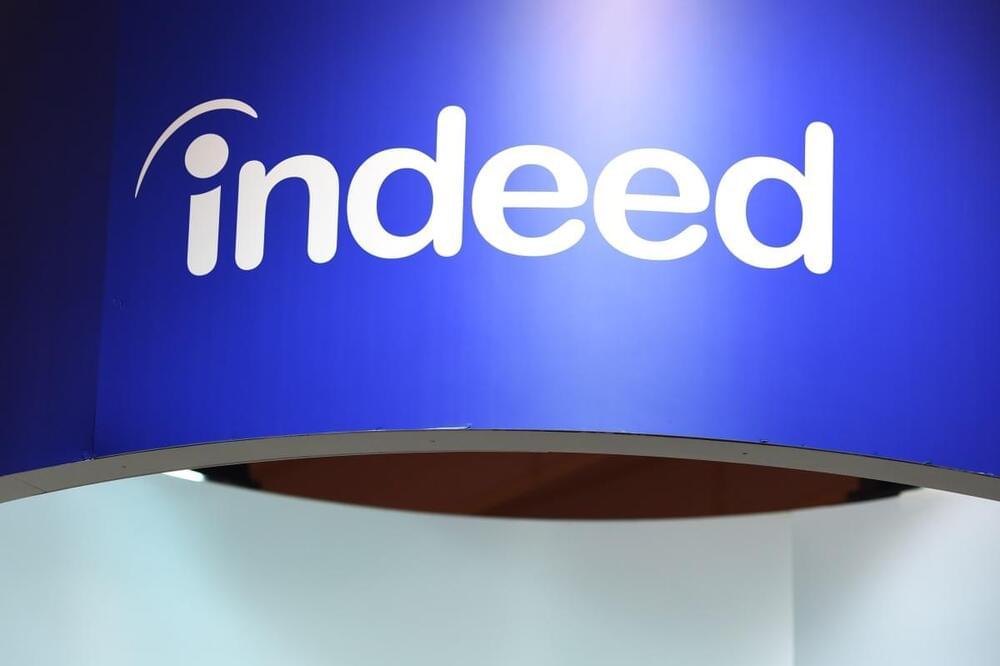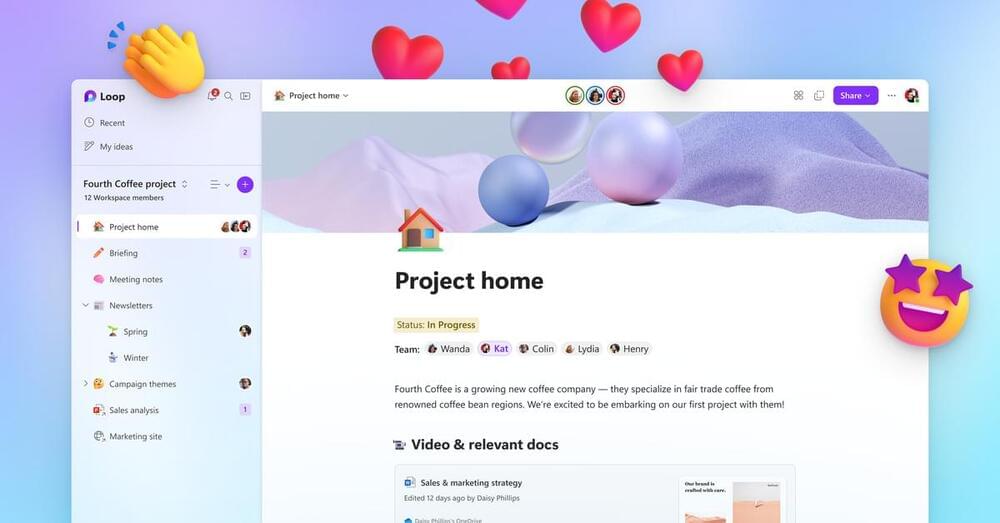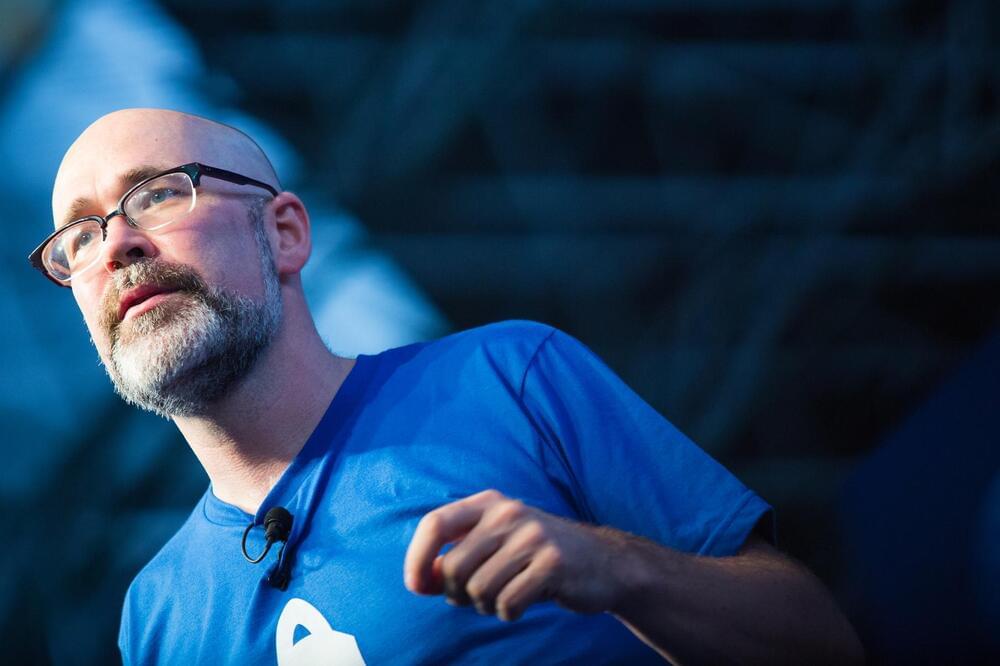A pair of philosophers sounded the alarm on the dystopian applications they see being ushered in by brain-computer interface (BCI) technology.
Within a month of the Big Bang, a second cosmic explosion may have given the universe its dark matter, new research suggests.
At a company that helps people find jobs, 2,200 employees will now have to embark on a job search of their own. Indeed laid off 15% of employees today, CEO Chris Hyams announced in an all-hands meeting.
In a blog post, Hyams elaborated on the decision by explaining that the job market is expected to continue to cool down. Indeed makes its money by allowing companies to sponsor job listings, which shows the listing to more job seekers. But Hyams said that as of last quarter, sponsored job volumes were down 33% year over year, and total job openings were down 3.5%.
“With future job openings at or below pre-pandemic levels, our organization is simply too big for what lies ahead,” Hyams wrote. “We have held out longer than many other companies, but the revenue trends are undeniable. So I have decided to act now.”
GitHub is announcing its Copilot X initiative today, an extension of its work on its popular Copilot code completion tool, which originally launched into preview all the way back in 2021. With this, the Microsoft-owned company is launching a code-centric chat mode for Copilot that helps developers write and debug their code, as well as Copilot for pull requests, AI-generated answers about documentation and more. Unsurprisingly, these new features are powered by OpenAI’s GPT-4, though it’s worth noting that, mostly for latency reasons, the code completion tool remains on GitHub’s Codex model, which it derived from GPT-3.
“With the new model coming online, we asked ourselves: what’s the next step? What’s the next step for Copilot? We believe that for auto completion, we nailed that scenario,” GitHub CEO Thomas Dohmke told me.
Microsoft’s Notion competitor has futuristic Lego-like Office documents and its AI-powered Copilot assistant.
Microsoft is now letting anyone preview Microsoft Loop, a collaborative hub offering a new way of working across Office apps and managing tasks and projects. Much like Notion, Microsoft Loop includes workspaces and pages where you can import and organize tasks, projects, and documents. But what sets the two apart is Loop’s shareable components that let you turn any page into a real-time block of content that can be pasted into Microsoft Teams, Outlook, Word on the web, and Whiteboard.
Loop components are constantly updated and editable for whoever they’re shared with.
Loop components really could be the future of Office documents.
“How do we mitigate the downside of technology, to make sure that human values, public interest and democracy are built into the system?”
Mozilla, the not-for-profit force behind the Firefox browser, is launching an AI-focused startup with a mission to create an open source and trustworthy alternative to emerging heavyweights like ChatGPT. The company this morning announced that Moez Draief’, a former global chief scientist with Capgemini Invent, will head the venture, which has a $30 million seed investment from Mozilla Foundation.
Mozilla Foundation president Mark Surman spoke with Forbes about the new venture, called Mozilla.
What Mozilla did for browsers with Firefox, it’s now planning to do in the realm of AI. Foundation chief Mark Surman says there’s already momentum to take on the titans of tech.
DART VADAR can automatically sense and respond to molecular triggers in cells.
During the COVID-19 pandemic, the term mRNA was brought to the public’s attention. It is, however, not a new medical technology, having been identified in 1961.
These mRNA vaccines were developed to generate a full-body immune response in order to protect the human body from the deadly coronavirus and its variants.
Dr_Microbe / iStock.
“This new advancement would also allow the encoding of data on ultrafast laser pulses.”
A team of international physicists, led by the University of Arizona, was able to switch a light signal optically at attosecond rates in order to achieve hitherto unreachable data transfer speeds: one quintillionth of a second is an attosecond.
Optical transistors will regulate electric signals.
“This interface could revolutionize the way we interact with technology.”
Researchers from the University of Cambridge have created a new type of neural implant that could restore limb function in paralyzed limbs.
There have been former attempts at using neural implants to restore limb function, but these mostly failed. This is because scar tissue can envelop the electrodes over time, disrupting the connection between the device and the nerve.
University of Cambridge.
“Modern satellite technology will allow us to explore our celestial backyard.”
The University of Sydney and Bulgarian aerospace manufacturer EnduroSat have teamed up to search for alien life in our nearest star system, Alpha Centauri.
The plan for the TOLIMAN mission is to search for planets in the habitable zone around two Sun-like stars in the system, Alpha Centauri A and B, which are located four light-years from Earth.
ESA









